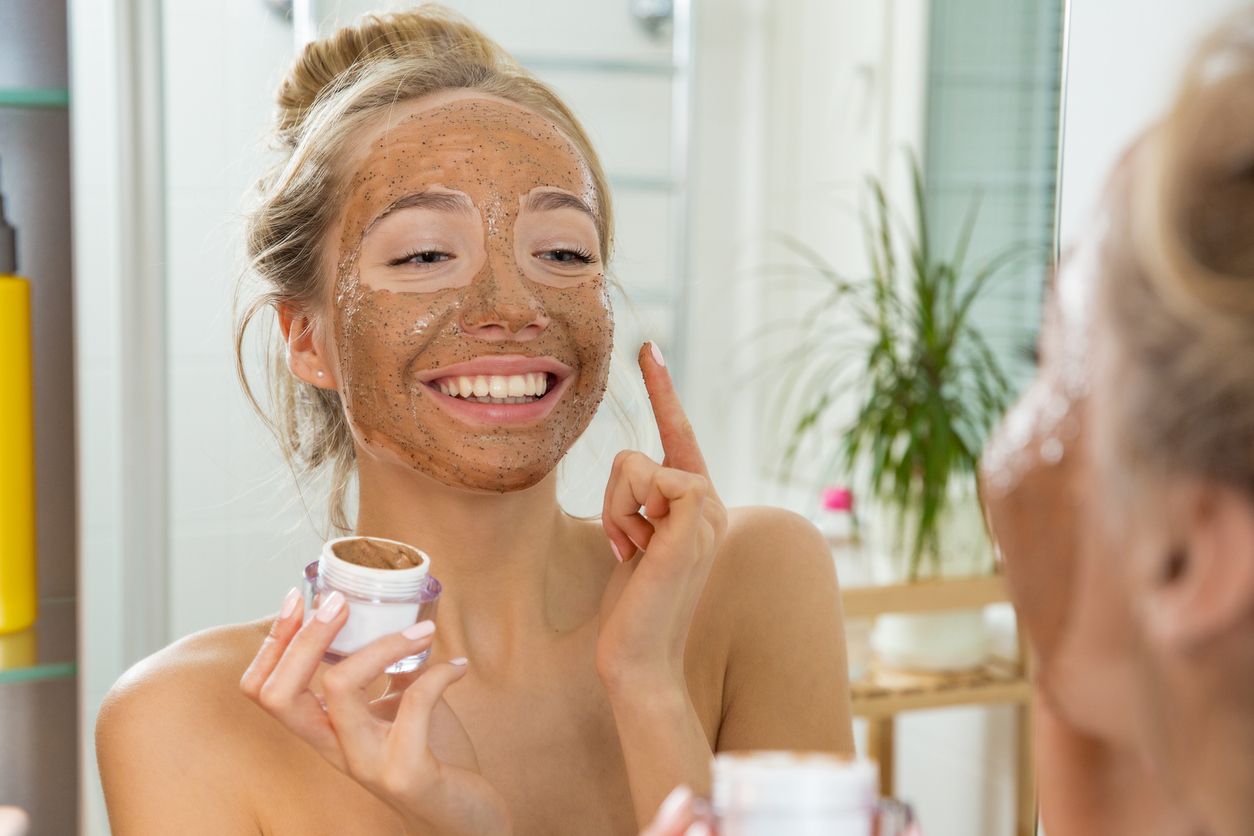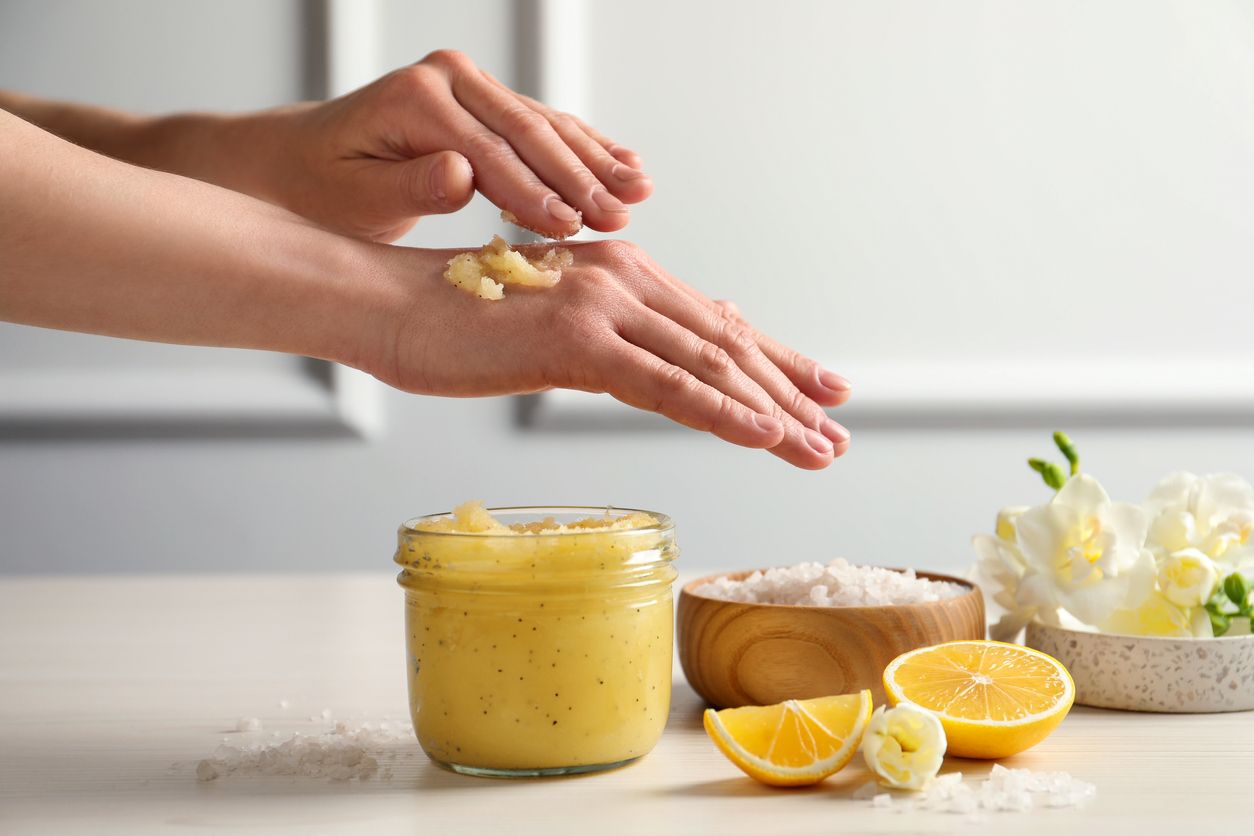
- Home
- Trend
- Weight Loss Strategies
- Acne Tips
- Hair Health Information
- Blemish Removal Tips
- Acne Scar Removal Tips
- Muscle Building Techniques
- Intimate Care Tips
- Postpartum Intimate Care
- Eye Bags Wiki
- Tips for Face Slimming
- Secret of Permanent Hair Removal
- Breast Enlargement Tips
- Cure to Snoring
- Marionette Lines
- Skin-Tightening Secrets
As the name suggests, exfoliating gel is a skincare product designed for deep cleansing. It helps regulate oil production and promotes the skin’s natural repair process for thorough purification and rejuvenation. All skin types can benefit from exfoliation to clear pores and maintain the skin’s renewal cycle. Daily cleansers don’t always remove all the grime and dead skin. Before adding an exfoliating gel to your shopping cart, learn about its four key benefits and get the ultimate buying guide. (Psst—scrubs with rough particles are a thing of the past!) This guide will give you a fresh perspective on exfoliation and help boost your skin's absorption power for more effective skincare results.
Understanding Your Skin: What Is the Stratum Corneum?

The stratum corneum is the outermost layer of your skin and part of the epidermis. It consists of dead keratinized cells that form a natural barrier, shielding against external irritants and locking in moisture.
Under normal circumstances, this layer sheds naturally as part of a 28-day skin renewal cycle. However, factors such as aging, stress, pollution, and irregular sleep patterns can disrupt this process. When dead skin builds up, it leads to rough texture, dullness, and clogged pores.
An overly thick stratum corneum can reduce the effectiveness of your skincare products and clog pores—causing blackheads, whiteheads, and even acne.
Moreover, accumulated dead skin can trigger low-level chronic inflammation, leading to pigmentation, sensitivity, redness, and premature aging. In severe cases, it may hinder collagen production, resulting in reduced elasticity and fine lines.
Say Goodbye to Rough Skin: 4 Major Benefits of Exfoliating Gel

1. Improves Skin Texture
Exfoliation deeply cleanses and removes dead skin cells, leaving the skin smoother and softer. Regular use also reduces flaking and dryness for a more comfortable skin feel.
2. Brightens Skin Tone
Built-up dead skin can make your complexion look dull. Regular exfoliation restores a radiant, even-toned appearance, making you look fresher and more youthful.
3. Unclogs Pores & Prevents Breakouts
Healthy skin is clean skin. Without regular exfoliation, oil and dirt accumulate, causing blackheads and breakouts. Exfoliating gel helps prevent and alleviate these concerns.
4. Enhances Absorption of Skincare Products
Whether it's serums, moisturizers, or sunscreen, active ingredients need to penetrate the skin. By removing dead skin cells, exfoliating gels maximize product absorption for optimal results.
免費體驗
Acne Treatment
1 Minute Self-Registration
Date should not be before minimal date
Top 4 Tips for Buying Exfoliating Gel: Gentle Yet Effective Radiance
1. Reputation and Brand Trustworthiness
Choose brands with a solid reputation and positive user feedback. Established companies usually have better R&D and quality control. Check online reviews for products that suit your skin and deliver visible results, especially if you have sensitive or problem-prone skin.
2. Ingredients and Safety Matter
Scan the ingredients list carefully. Avoid products with alcohol, fragrances, or artificial coloring—especially for sensitive skin. Look for plant-based or hydrating ingredients like aloe vera, witch hazel, green tea extract, tea tree oil, hyaluronic acid, or glycerin. Also, check for dermatological testing and cruelty-free certification for extra assurance.
3. Understand the Type of Exfoliation: Physical vs. Chemical
• Physical exfoliation uses fine particles or friction to remove dead skin—ideal for thicker, resilient skin types, but may cause irritation if used improperly.
• Chemical exfoliation uses AHAs, BHAs, or enzymes to dissolve dead skin gently—better suited for dry or sensitive skin.
Choose the right type based on your skin’s condition to avoid over-exfoliation and damage.
4. Price and Value
Exfoliating gels range from drugstore to high-end. Select one that fits your budget and frequency of use. High-end doesn’t always mean better; the key is how well it suits your skin. Consider the amount used per application and cost per use when evaluating long-term value.
Skincare Tips for Different Skin Types: Find the Best Exfoliating Gel for You
• Dry Skin: Prone to flaking—go for low-concentration AHA products with plant-based and hydrating ingredients. Avoid harsh cleansers.
• Oily Skin: Excess sebum—choose oil-controlling formulas with salicylic acid or tea tree for antibacterial and pore-clearing benefits.
• Combination Skin: Use stronger products on the T-zone and gentler ones on the cheeks, or opt for a mild all-over gel paired with a moisturizing cream.
• Sensitive Skin: Avoid irritating ingredients—select alcohol-free and fragrance-free formulas, and look for dermatologically tested products.
Ingredient Tips:
• Beginners should stick to AHAs under 5% concentration.
• Sensitive skin? Avoid alcohol and added fragrance.
• Undergoing other treatments like chemical peels or laser? Consult a professional before use.
How to Use Exfoliating Gel Properly – 5 Key Steps
1. Cleanse your face with a gentle cleanser to remove surface dirt and oil.
2. Pat dry to ensure your hands and face are fully dry—moisture can hinder gel effectiveness.
3. Apply a suitable amount to your face (avoid eye and lip areas).
4. Massage gently in circular motions for 30–60 seconds to slough off dead skin.
5. Rinse thoroughly with lukewarm water to remove residue and prevent irritation.
6. Follow up with hydrating care like a serum or moisturizer to soothe and protect the skin barrier.
7. Recommended usage: 1–2 times a week to avoid sensitivity or dryness from over-exfoliation.
Bonus Tip:
Pair with regular hydrating masks for enhanced results. For oily skin, use at night to avoid sun-related irritation.
免費體驗
Acne Treatment
1 Minute Self-Registration
Date should not be before minimal date
Caution: Don’t Over-Exfoliate!
• Don’t use with scrubs or other abrasive products to prevent skin damage.
• Avoid broken or inflamed areas—use a cotton swab to treat other zones instead.
• Apply sunscreen during the day to protect the fresh skin underneath.
• Daily use is not recommended—overuse may thin the skin and cause irritation or redness.
Skip the Exfoliating Gel! Try This Deep-Cleansing & Skin-Renewing Alternative: Perfect Medical’s Acne Treatment
Worried exfoliating gels might not suit your skin, even after all your research? Whether you have oily, dry, or sensitive skin, the Perfect Medical Acne Treatment is a must-try! It’s non-invasive, painless, and has no downtime or side effects.
This treatment uses advanced dual-spiral suction + vacuum microdermabrasion technology to achieve deeper cleansing than exfoliating gels, while also rebalancing oil and moisture, softening dead skin, and clearing follicles. Its purifying ingredients activate collagen production from within and target various skin issues at the root. Visible skin renewal in a short time is finally possible!
Register now to enjoy:
Free professional skin analysis + Perfect Medical Acne Treatment!
Register Now: Acne Treatment免費體驗
Acne Treatment
1 Minute Self-Registration
Date should not be before minimal date
FAQ

Is itchy skin a sign of cellulitis?
Possibly. While cellulitis doesn’t usually cause itching, affected areas may appear red, swollen, hot, and painful. Consult a doctor for accurate diagnosis.
What’s the link between itchy skin and the liver?
Inflammation or tumors in the liver, gallbladder, or pancreas can block bile ducts. When bile builds up in the skin, it can cause itching—sometimes a warning sign of pancreatic cancer.
Can weather changes cause itchy skin?
Yes. Skin may itch while adjusting to changes in temperature or humidity, with sunburn being a common trigger.
Can itchy skin result from contact with chemicals?
Absolutely. Chemical exposure can trigger allergies or irritation, whether through skin contact or internal absorption, leading to itchiness.
What is folliculitis?
A common itchy skin condition that typically affects the scalp but can also appear on the face as acne-like inflammation.








